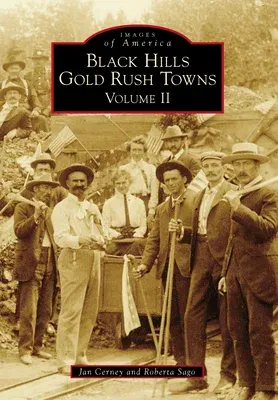Jan Cerney
(Author)Black Hills Gold Rush Towns: Volume IIPaperback, 11 May 2015

Qty
1
Turbo
Ships in 2 - 3 days
In Stock
Free Delivery
Cash on Delivery
15 Days
Free Returns
Secure Checkout

Part of Series
Images of America
Print Length
128 pages
Language
English
Publisher
Arcadia Publishing (SC)
Date Published
11 May 2015
ISBN-10
1467113972
ISBN-13
9781467113977
Description
Product Details
Author:
Book Format:
Paperback
Country of Origin:
US
Date Published:
11 May 2015
Dimensions:
22.86 x
16 x
0.51 cm
ISBN-10:
1467113972
ISBN-13:
9781467113977
Language:
English
Pages:
128
Publisher:
Series:
Weight:
317.51 gm